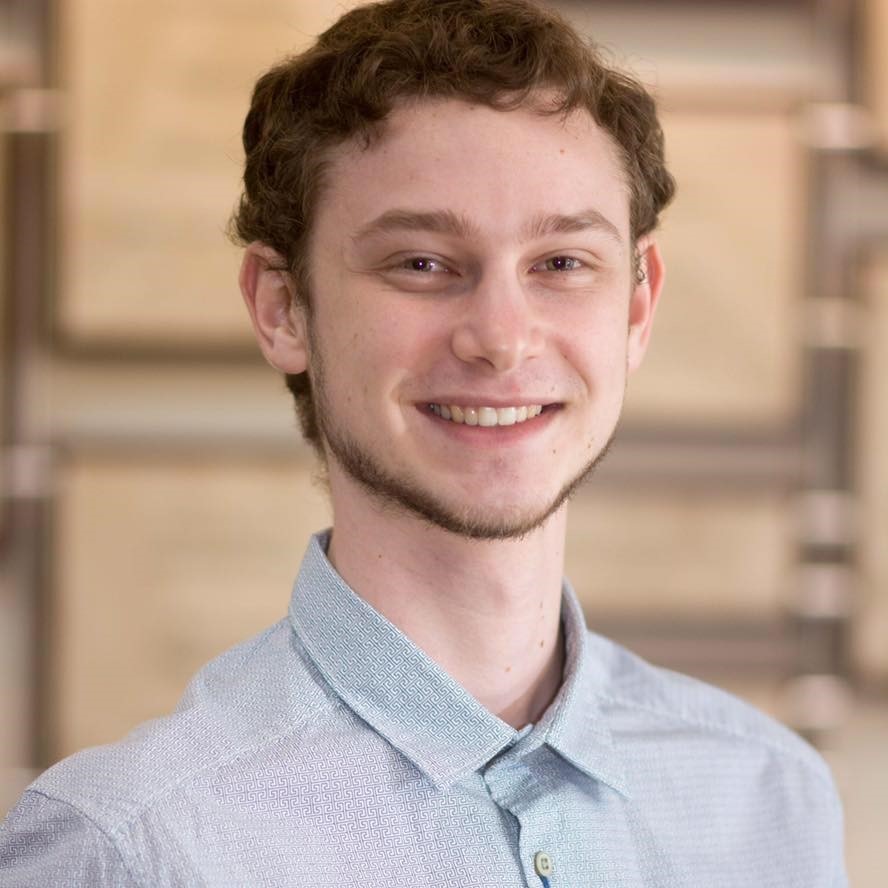Matthew Panetta graduates this month!
After years of studying Engineering Chemistry, he will remain on campus where he began work last month toward a Master’s degree at the Robert M. Buchan Department of Mining.
He is also a former co-president of EngiQueers, the EngSoc club for LGBTQ+ students in engineering. And yet for Matthew, this trail he blazed was not an easy one. At a time when many people struggle to define and articulate their sexual identity, he arrived at Queen’s in the fall of 2016 fully out and prepared to embrace the queer community on campus.
“I definitely felt more confident as a queer person coming out of high school than I did throughout my first year here,” he said. “I unfortunately was ostracized quite a lot in my first two years within Queen's Engineering. For example, I was supposed to live in a housing group of five guys going into second year, but when I told them I am queer before signing the lease, they kicked me out of the house immediately.”
“And I know quite a lot of my friends have had similar experiences in first and second year especially,” he added, “when other people found out we were queer we were definitely treated differently. A lot of people didn't even give me a chance. They didn't wanna get to know me, they just were like, Oh, you're queer. I don't want you in my group, I don't want to live with you, I don't want to talk to you more, and unfortunately, I do think it is mostly an engineering thing.”

Though it was small, Matthew found a queer community in engineering at Queen’s when he joined the organization that became Queen’s EngiQueers. And it’s worth noting now that EngSoc has embraced the club more visibly thanks to the work of outgoing EngiQueers president Nicholas Ramsubick. Yet only a few years have passed since Matthew discovered a degree of solidarity beyond this campus.
“When I was at an EngiQueers conference I met people from University of Ottawa, people from McGill, Western, all these different schools, and a lot of us shared experiences where we've been ostracized or bullied for being queer within our engineering faculties,” he said. “So I think this is a pretty common thing happening to a lot of queer students, and I do think being in engineering it definitely makes it a bit more prominent, like I said, there's a lot of men in engineering, and so it's very hyper-masculine and because of that a lot of queer men are often feminized and treated like a woman, which then you get into the issues of misogyny, and we know women also face a lot of barriers in engineering.”
From that experience, he’s come to see the value in understanding and embracing cultures other than his own. Looking to the future, he’d like to see the club grow so large and visible within the faculty that the closeted acquaintances he made these past five years won’t feel so obliged to stand outside the group and peer in, but to embrace the events and fundraisers as an active participant. He’d also like for individuals, everyone, to look beyond their own interests for opportunities to learn and grow.
“For someone starting in first year,” he said, “I would definitely recommend getting involved with different types of groups, not just EngiQueers, but get involved with WISE and the new NSBE chapter. It's definitely important for these marginalized groups to have their space, but it's also really important for people that aren’t part of these groups to understand and learn and support each other. When you have that solidarity from people outside of your group, it really just helps everyone. So go to meetings where you're welcome, get involved with their fundraisers and events. You'll have a lot of fun, and you'll learn a lot about a culture you don't know about. You’ll be better off for it.”
“And oftentimes, a lot of the people there, as long as you’re respectful, we would love to have you come and be part of our events.”